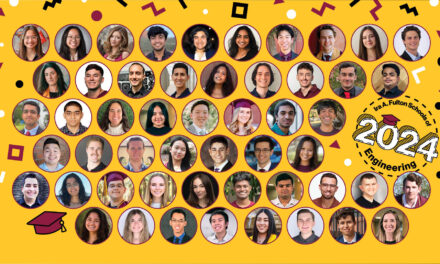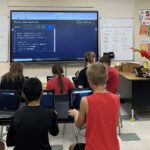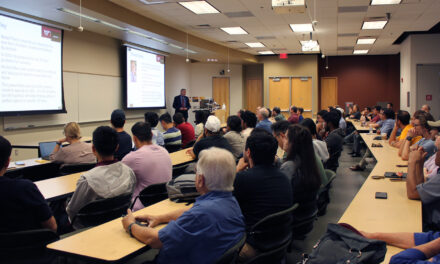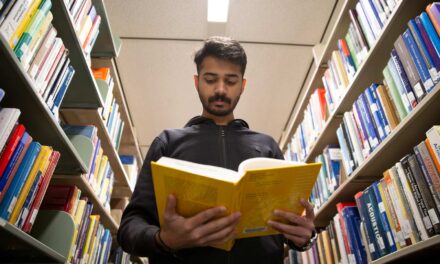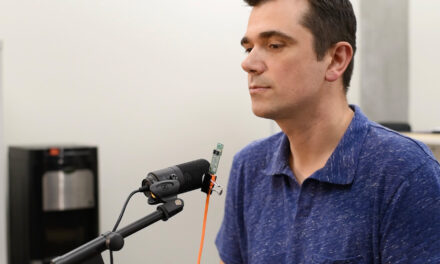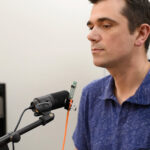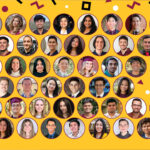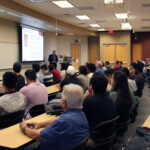
“I owe ASU my life”: The impact of second chances
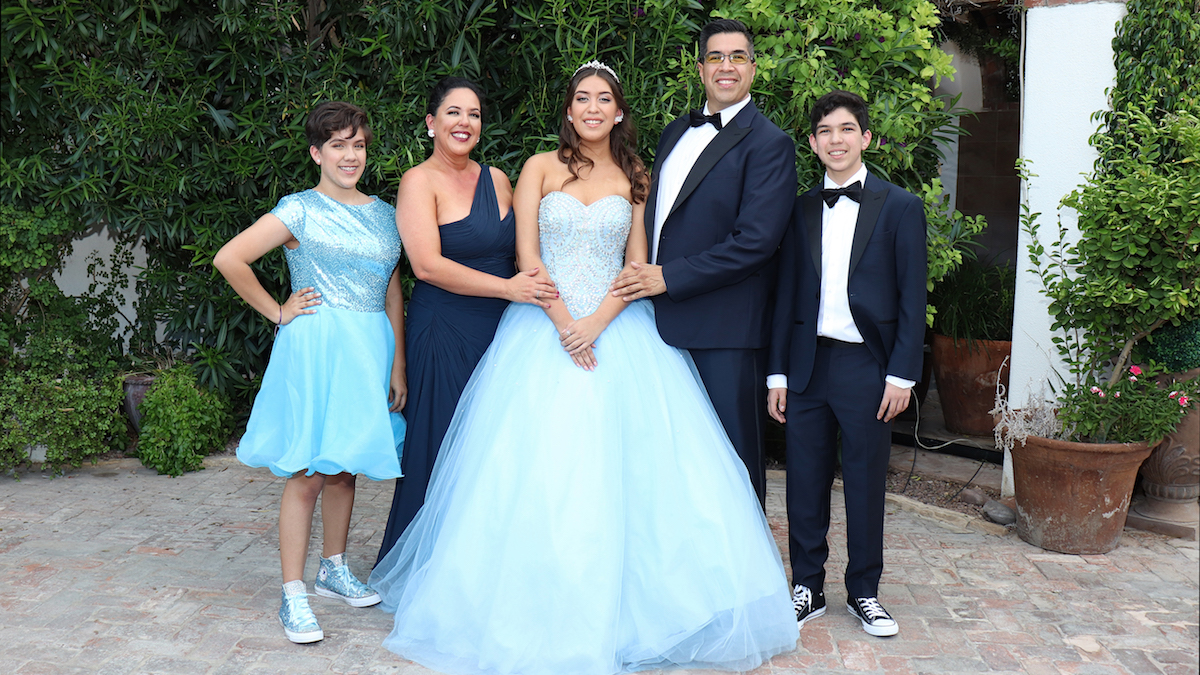
Above: Arizona State University alumnus Rob Reyes (second from right) graduated in 1998 after overcoming a series of struggles in his first few semesters and being given a second chance by faculty members to complete studies for a degree. He and his family now live in California. Photograph courtesy of Rob Reyes
A student’s mental health can make or break an academic career. But believing in that student’s capacity to succeed is sometimes all it takes to save a life.
For Rob Reyes, an Arizona State University alumnus, getting a second chance to improve his mental health and earn his degree has set him on the path toward a bright future as an engineer.
A transfer student from the University of Arizona, Reyes came to ASU in 1996 to study mechanical engineering in the college that would several years later become the Ira A. Fulton Schools of Engineering. But his first two semesters at ASU brought more challenges than he expected.
“My junior year was really when a lot of things started falling apart,” Reyes said. “I wasn’t doing very well in school, I wasn’t attending classes, I was sleeping a lot, I wasn’t very motivated. It was a lot of things. Looking back, I was suffering from depression.”
The spring semester passed by too quickly. Despite his efforts and the vested interest he had in passing his classes, Reyes was unable to make a comeback with his grades.
“I started panicking because I wanted this degree more than anything,” Reyes said. “It was a really dark time when I realized I wasn’t going to get my grades up. That’s when I started becoming suicidal — I almost attempted suicide that spring semester.”
Feeling like he was running out of time and options, Reyes forged a doctor’s note and handed it to his professor, Daniel Jankowski. The note made its way to associate dean Manny Aros, who didn’t accept the note and suggested that if Reyes was actually sick, he should obtain a real doctor’s note and then they could talk.
“I was furious because I knew I was caught but I wasn’t sure how to go about handling it,” Reyes said. “A few days later I went back into his office and I just broke down. I was emotionally devastated and worried I wouldn’t be able to continue my education.”
Although Reyes was facing expulsion, Aros offered to put him on academic probation so he could try and raise his GPA to a 2.0. As part of the probation, Reyes had to see a psychologist. That’s when his depression was officially diagnosed. But by the end of the fall semester, Reyes still did not have the grades he needed and was unable to continue studies in his degree program.
This would have marked the definitive end of Reyes’s pursuit of an engineering degree — that is, until the deans from both the Tempe campus and ASU East offered him a second chance to earn his degree at another campus.
Reyes learned about an engineering and applied sciences program starting up at ASU East — which is now called the ASU Polytechnic campus and is home to The Polytechnic School, one of the six Fulton Schools. There, Reyes found opportunities to explore engineering in ways he hadn’t been able to in his mechanical engineering program on ASU’s Tempe campus.
“I believe what [ASU] East was able to give me is that I was able to do a lot more hands-on and practical things with [engineering], whether it be 3D-modeling or graphic design or programming or whatever else it was,” Reyes said. “That’s what really ignited a passion in me. I was able to learn new things and immediately apply them and create something.”
In this new degree program, Reyes found joy despite the long hours he spent in the computer labs working on projects. He began to consistently earn a place on the dean’s list and was able to graduate in summer 1998 as part of the first graduating class from what is now The Polytechnic School.
Reyes views his college years as a transformative time, and although he experienced difficulties he is grateful to have been able to overcome them.
“It was quite the journey, and I was lucky enough to be a part of it,” Reyes said. “I don’t mind sharing it or talking about those dark times because that’s what defined me as who I am right now. That’s what helped me get to where I am today.”
Six days after graduation, Reyes and his wife moved to California, where they have been since.
“I like to say we came [to California] looking for gold,” Reyes said. “We’ve been blessed enough to be here for over 20 years now. I am eternally grateful to ASU for the foundation it provided.”
Today, Reyes works as a software consultant for Bay Dynamics, a company he has been with since 2003. He travels often, but also works a lot from home, which he is thankful for because he gets to do what he loves while also spending time with his family.
Reyes says that a big turning point for him in college was being given the opportunity to find a degree program he was passionate about when a program he was in previously didn’t work out.
This experience led to the advice he now gives to others.
“When I mentor someone, I always say, ‘Make sure you’re passionate about the subject, because if you’re not, you’re going to be struggling with it,’” Reyes said. “‘If you’re passionate about it, you won’t mind going through the struggle.’”
Reyes credits the career success he has attained to having been in a place where he was surrounded by people who believed in him.
“There was a lot of darkness that the people at ASU were able to see past, and they give me that second chance of going to ASU East and being successful,” Reyes said.
“I owe ASU my life, literally,” he said, “because if my professors hadn’t pointed me in the direction to get help, if they hadn’t given me the second chance, if I didn’t get the opportunity to fulfill that dream of getting my degree, I don’t know where I would be or what state I would be in. I’m blessed more than I deserve.”






